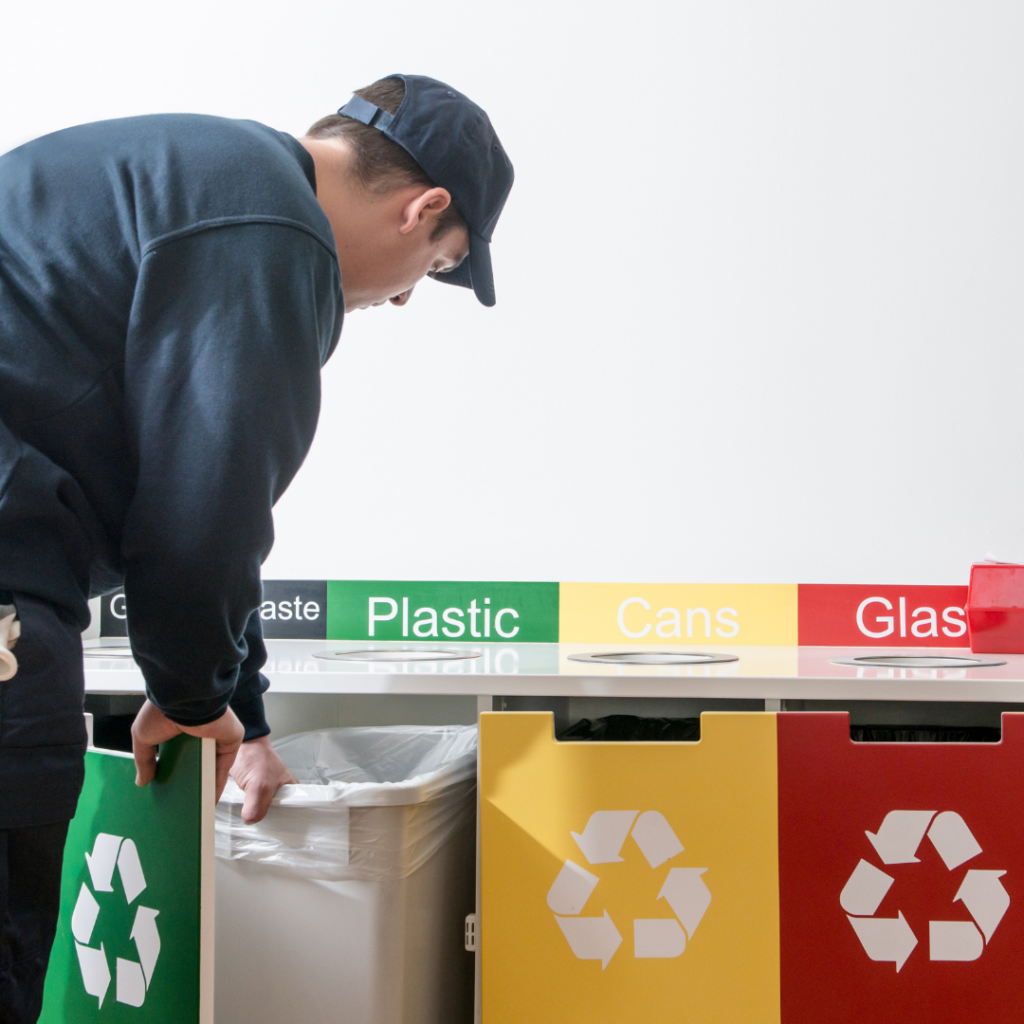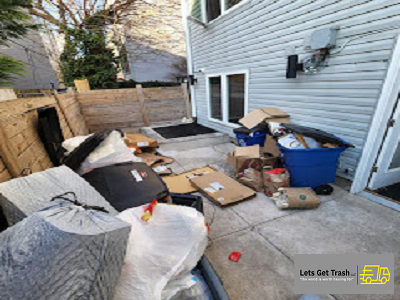Responsible Recycling: Making a Difference in Waste Disposal
In today’s world, where environmental concerns are at the forefront of global discussions, responsible recycling has emerged as a crucial aspect of waste disposal. With the ever-increasing volume of waste generated by human activities, the need for sustainable waste management practices has never been more urgent. Responsible recycling not only helps reduce the burden on landfills but also conserves natural resources and mitigates environmental degradation. Let’s delve into the significance of responsible recycling and how it makes a tangible difference in waste disposal.
Reducing Landfill Burden
Landfills are filling up at an alarming rate, posing significant environmental and health risks. Irresponsible disposal of waste leads to the accumulation of non-biodegradable materials, leaching harmful chemicals into the soil and groundwater. By recycling materials such as paper, plastics, glass, and metals, we can divert substantial amounts of waste from landfills. This not only extends the lifespan of existing landfill sites but also reduces the need for new ones, sparing valuable land from being used for waste disposal.
Landfills, once considered a convenient solution for waste disposal, have now become emblematic of environmental degradation and public health risks. As our consumption patterns escalate and urban populations burgeon, the pressure on landfills intensifies, exacerbating their detrimental effects on ecosystems and communities. However, responsible recycling offers a viable alternative—one that not only alleviates the burden on landfills but also fosters a more sustainable approach to waste management.

The Growing Challenge of Landfills
The proliferation of landfills worldwide underscores the magnitude of the waste disposal problem. Municipal solid waste, consisting of everyday items like packaging, food scraps, and textiles, accounts for a significant portion of landfill contents. As these landfills reach capacity, they emit methane—a potent greenhouse gas—into the atmosphere, contributing to climate change. Moreover, the leachate produced by decomposing waste can contaminate soil and water sources, posing risks to both environmental and human health.
The Role of Responsible Recycling
Responsible recycling offers a multifaceted solution to the challenges posed by landfills. By diverting recyclable materials from the waste stream, recycling initiatives alleviate the strain on landfill capacity. Materials such as paper, plastics, glass, and metals, which would otherwise languish in landfills for decades or even centuries, can be repurposed into new products through recycling processes. This not only reduces the volume of waste destined for disposal but also conserves valuable resources and minimizes environmental harm.
Extending Landfill Lifespan
One of the immediate benefits of responsible recycling is the extension of landfill lifespan. By diverting recyclable materials away from landfills, recycling programs help slow the rate at which these facilities reach capacity. This, in turn, postpones the need for costly expansions or the creation of new landfill sites, sparing communities from the environmental and social repercussions associated with landfill proliferation. By maximizing the efficiency of existing landfill infrastructure, responsible recycling offers a pragmatic solution to the waste management conundrum.
Economic and Environmental Benefits
The benefits of reducing landfill burden extend beyond environmental preservation. From an economic standpoint, responsible recycling creates opportunities for job creation and economic growth in the recycling industry. Moreover, by conserving resources and minimizing the need for virgin materials, recycling helps reduce production costs for manufacturers, ultimately leading to economic savings. Furthermore, by mitigating methane emissions from landfills, responsible recycling contributes to climate change mitigation efforts, aligning with global sustainability goals.
Community Engagement and Education
Achieving meaningful reductions in landfill burden requires active participation and engagement from communities. Educating individuals about the importance of responsible waste management and providing convenient recycling infrastructure are essential components of successful recycling programs. Community outreach initiatives, such as educational workshops, recycling awareness campaigns, and incentivized recycling programs, can mobilize individuals to embrace recycling practices and reduce their reliance on landfills. By fostering a sense of environmental responsibility and collective action, communities can play a pivotal role in reducing landfill burden and advancing sustainable waste management practices.
As the global population continues to grow, the imperative to address the challenges of waste management becomes increasingly urgent. Responsible recycling offers a pathway towards a waste-free future—one where landfills are no longer seen as the default destination for discarded materials. By reducing landfill burden, extending landfill lifespan, and promoting economic and environmental sustainability, responsible recycling serves as a linchpin of sustainable waste management strategies. Through collective efforts and ongoing commitment to recycling initiatives, we can forge a path towards a more resilient and regenerative future for generations to come.
Conserving Natural Resources
Many of the materials we use daily, such as metals and plastics, are derived from finite natural resources. Extracting these resources through mining, drilling, and deforestation exacts a heavy toll on the environment, depleting habitats and contributing to greenhouse gas emissions. Recycling allows us to reclaim and reuse these materials, significantly reducing the demand for raw resources. For example, recycling aluminum saves up to 95% of the energy required to produce it from bauxite ore, while recycling paper conserves forests and reduces carbon emissions associated with paper production.
In our modern world, where resource extraction is often synonymous with environmental degradation, responsible recycling emerges as a beacon of hope. The conservation of natural resources lies at the heart of recycling efforts, offering a sustainable alternative to the incessant depletion of finite resources. Through the systematic reclamation and reuse of materials, recycling not only mitigates the environmental impact of resource extraction but also promotes long-term ecological balance.
The Environmental Toll of Resource Extraction
Traditional methods of resource extraction, whether mining for metals, drilling for oil, or clear-cutting forests, exact a heavy toll on the environment. These activities disrupt ecosystems, destroy habitats, and release greenhouse gases into the atmosphere, contributing to climate change and biodiversity loss. Moreover, the extraction and processing of raw materials consume vast amounts of energy and water, further exacerbating environmental degradation. As global demand for resources continues to rise, the need for sustainable alternatives becomes increasingly pressing.
Responsible recycling offers a viable solution to the environmental challenges posed by resource extraction. By recovering and reprocessing materials from discarded products, recycling conserves valuable resources and reduces the need for virgin materials. Metals, plastics, glass, and paper—essential components of countless consumer goods—can be salvaged and transformed into new products through recycling processes. This closed-loop approach to resource management minimizes waste and maximizes resource efficiency, paving the way for a more sustainable future.
Energy and Carbon Savings
One of the key benefits of recycling is its potential to save energy and reduce carbon emissions. Compared to the extraction and processing of raw materials, recycling often requires significantly less energy input. For example, recycling aluminum saves up to 95% of the energy required to produce aluminum from bauxite ore—an energy-intensive process that involves mining, refining, and smelting. Similarly, recycling paper conserves forests and reduces carbon emissions associated with deforestation and pulp production. By curbing the demand for energy-intensive extraction processes, recycling helps mitigate climate change and reduce our carbon footprint.
Preserving Ecosystems and Biodiversity
Beyond energy savings, responsible recycling plays a crucial role in preserving ecosystems and safeguarding biodiversity. By reducing the need for resource extraction, recycling helps protect habitats and ecosystems from destruction and degradation. Forests, wetlands, and other natural areas are spared from the ravages of mining, logging, and drilling, allowing wildlife to thrive and ecological balance to be maintained. Moreover, by minimizing pollution and habitat destruction associated with resource extraction, recycling contributes to the preservation of vulnerable species and ecosystems worldwide.
Economic Opportunities and Innovation
In addition to its environmental benefits, recycling offers economic opportunities and drives innovation. The recycling industry, encompassing collection, processing, and manufacturing, creates jobs and stimulates economic growth in communities around the world. Moreover, the pursuit of recycling innovations, such as advanced sorting technologies and closed-loop manufacturing processes, fosters creativity and drives technological advancement. By embracing recycling as a cornerstone of the circular economy, businesses can unlock new markets, reduce production costs, and enhance their sustainability credentials.
In an era marked by resource scarcity and environmental degradation, responsible recycling offers a beacon of hope. By conserving natural resources, reducing energy consumption, preserving ecosystems, and driving economic growth, recycling paves the way towards a more sustainable and resilient future. As individuals, businesses, and governments, we must prioritize recycling efforts and embrace the principles of resource conservation and circularity. By working together to maximize the value of our resources and minimize our environmental footprint, we can build a more prosperous and sustainable world for generations to come.
Mitigating Pollution
Improper disposal of electronic waste (e-waste) is a growing concern due to its toxic components, including lead, mercury, and cadmium. When electronic devices end up in landfills or are incinerated, these hazardous substances can leach into the environment, contaminating soil, water, and air. Responsible recycling of e-waste involves safely dismantling and processing electronics to recover valuable materials while ensuring the proper disposal of toxic components. By doing so, we prevent pollution and minimize the health risks posed to communities and ecosystems.

Promoting Circular Economy
Responsible recycling is a cornerstone of the circular economy, a regenerative approach aimed at minimizing waste and maximizing resource efficiency. Instead of following a linear “take-make-dispose” model, the circular economy emphasizes the continuous circulation of materials through reuse, recycling, and remanufacturing. By closing the loop on product lifecycles, recycling enables the transformation of waste into valuable resources, fostering economic growth while reducing environmental impact. Businesses play a pivotal role in driving the transition to a circular economy by designing products with recyclability in mind and implementing sustainable practices throughout their operations.
Engaging Communities
Effective recycling programs rely on active participation and engagement from communities. Educating individuals about the importance of responsible recycling and providing accessible recycling facilities are essential steps in fostering a culture of sustainability. Community-led initiatives, such as recycling drives, composting programs, and electronic waste collection events, empower individuals to take action and contribute to waste reduction efforts. By working together, communities can achieve significant strides in waste diversion and environmental stewardship.
Conclusion
Responsible recycling is more than just a waste management strategy—it’s a fundamental component of sustainable development and environmental protection. By reducing landfill burden, conserving natural resources, mitigating pollution, promoting circular economy principles, and engaging communities, responsible recycling makes a tangible difference in waste disposal. As individuals, businesses, and governments, we must prioritize recycling efforts and embrace a collective responsibility to safeguard the planet for future generations. Together, we can turn the tide on waste and build a more sustainable future for all. Contact us today to learn how you can join the movement towards responsible recycling and make a positive impact on the environment.







